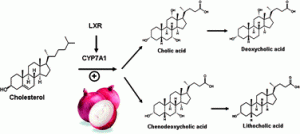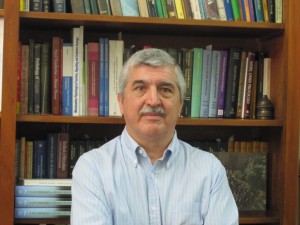Gary Williamson, Editor in Chief of Food & Function, talks to Kathleen Too about low dose long term nutrition studies, EU regulators and challenges faced by scientists in food industry and academia.
How did you become interested in food science research?
After completing my PhD and postdoc in biochemistry, I went to work for the Institute of Food Research in Norwich and gradually became more and more interested in plants and secondary metabolites and their biological activity. Eventually, this led to more studies on functional foods and their biochemical aspects. I have to say also, that I really enjoy good food. So food research has always been one of my main personal interests.
Your research focuses on functional foods and nutraceuticals, can you explain what these terms mean?
Functional foods are foods that have an activity above and beyond basic nutrition. Nutraceuticals tend to cover food extracts and supplements with a biological activity or with a proposed biological activity.
You’ve worked in both industry and academia, what are the different challenges facing scientists in these areas?
In industry, one problem is that there is a perceived bias in your research. If a company is doing a study on a particular product, then it is seen by the outside world that the company will do all it can for this product to succeed. But, actually, when I was at Nestlé, I can safely say that a lot more evidence was required to prove the benefit of a particular food to convince the managers to believe in the product. So in industry, the scientists are a lot more critical in the initial stages of a discovery and the perceived bias from the outside world is often not correct. In industry, you have less freedom to do research but more resources are available compared to academia. Sometimes, in industry, the scientists themselves can have different goals to the company goals. In academia, the biggest challenge is the money. Always money!
What kind of research do you think food industry should be funding?
Generally, the food industry has a preference for short term studies. But these may not give them the results that they like. It would be really good if industry could fund longer term studies, lasting years rather than weeks, in human nutrition. It is important to do long term low dose studies which are more difficult to conduct and to obtain measurable effects. Most scientists do pharmaceutical-type studies which are acute and high dose studies. The main challenge is to find new techniques that would allow us to do these long term low dose studies. People eat and drink all the time, so how do we study the effects of what they have been eating or drinking all their life? This is the main challenge.
How long does it take from the conception of an idea to its commercialisation?
What are the main barriers to overcome? It always takes too long to commercialise a product especially from the point of view of non-scientists in industry, such as managers and marketing people. It can take anywhere between 2 and 20 years. The main issue is not how long it takes but the different expectations of the different people on the project. That’s why marketing people have to understand that science is slow and painstaking and the scientists have to understand that marketing people cannot wait as long as they want them to wait. The other barrier is the regulators who are becoming stricter all the time. They are trying to apply the rules from the pharmaceutical industry to that of nutrition and I think that it is never going to work like that. Regulatory hurdles are becoming greater and if they are not careful, they may well strangle the science.
Why did you leave industry?
I left industry because I was keener to work on my own research and not necessarily on a specific product. I wanted to be in a university environment with PhD students and surrounded by the general ‘university expertise’. Also I reached the level I could in industry without going into more managerial roles and away from research, which I did not want to do.
What are your tips to become a successful scientist?
The bottom line is look after the people that work for you and motivate them to be at their best. The success of every project is a team effort. If you do not invest time in the people you work with, then they do not get the best out of the work and they do not get to discuss their ideas with you. My approach is to try to get them to do the best job they can and to do a first class thesis. This would benefit them for the rest of their life and also me in advancing my research.
As the editor-in-chief for the new RSC journal Food & Function, could you comment on the aims of this journal?
There is a real need for a new journal focussing on the novel aspects of food and nutrition and not just the conventional nutrition research that has been around for decades but covers some of the newer ideas of how food affects the health and how we can modify its structure to improve its health aspects.
If you weren’t a scientist, what would you do?
I am a keen photographer so maybe I would have my own photography company. Alternatively, I would like to think that I could have been a good barrister.
Also of interest
Food & Function: A new peer-reviewed journal linking the chemistry and physics of food with health and nutrition. Simply register to access all the Food & Function articles for free.
Chemistry for a healthy diet: Interview with Cesar Fraga, Associate Editor of Food & Function












 They may make us cry but onions are actually good for us, and researchers in China are beginning to explain why…
They may make us cry but onions are actually good for us, and researchers in China are beginning to explain why…


